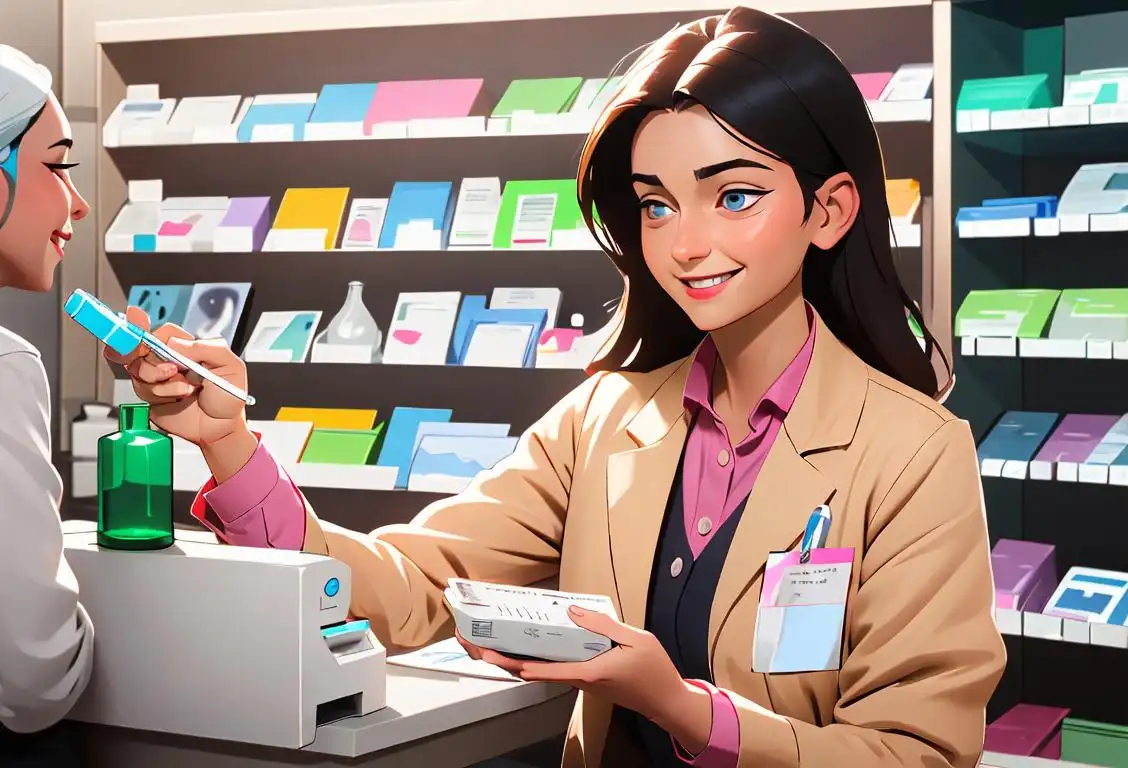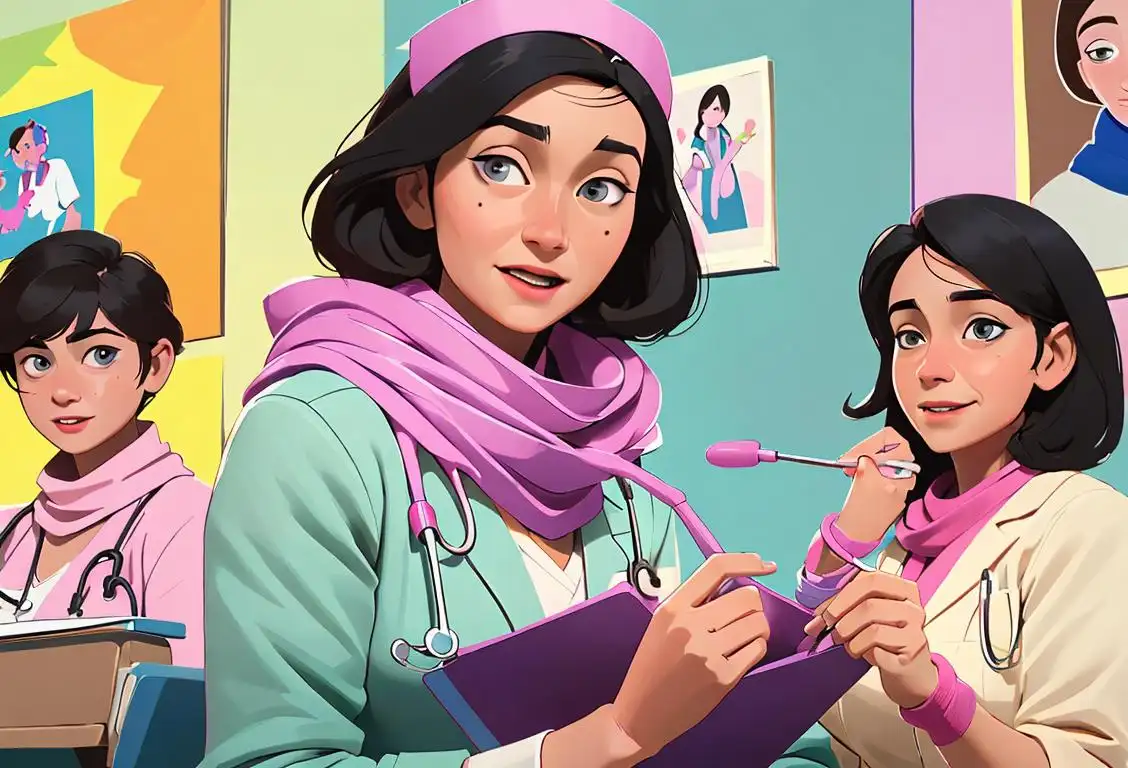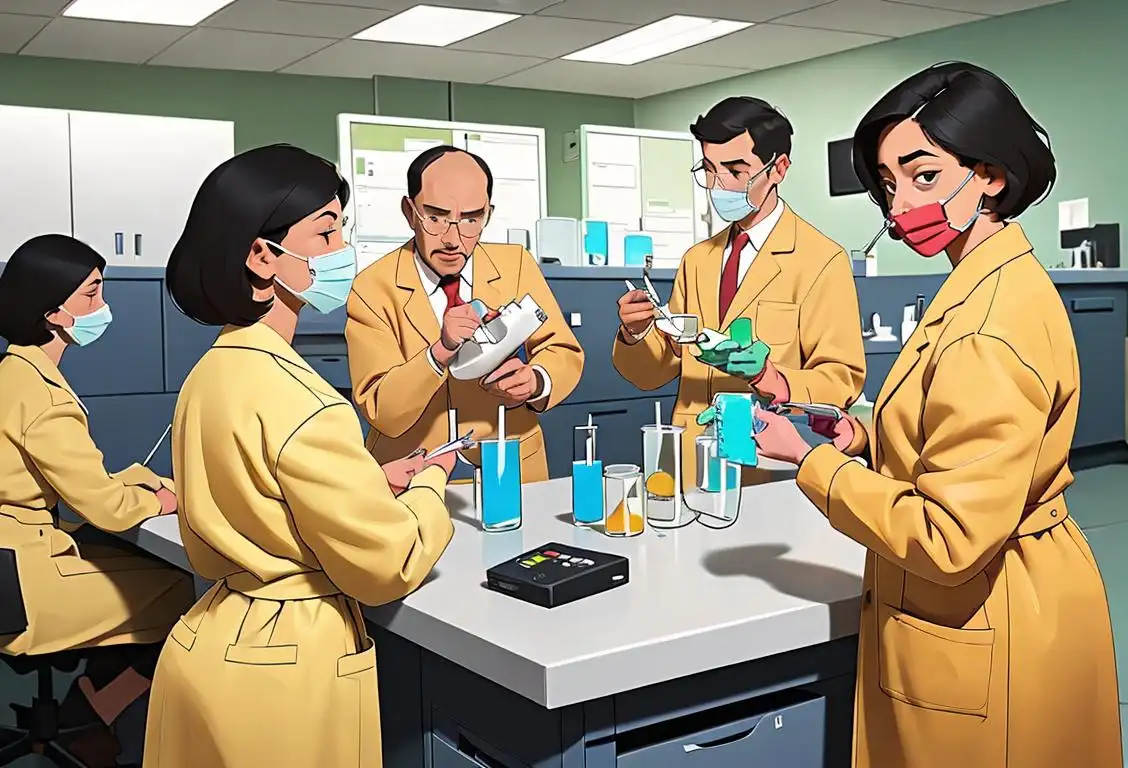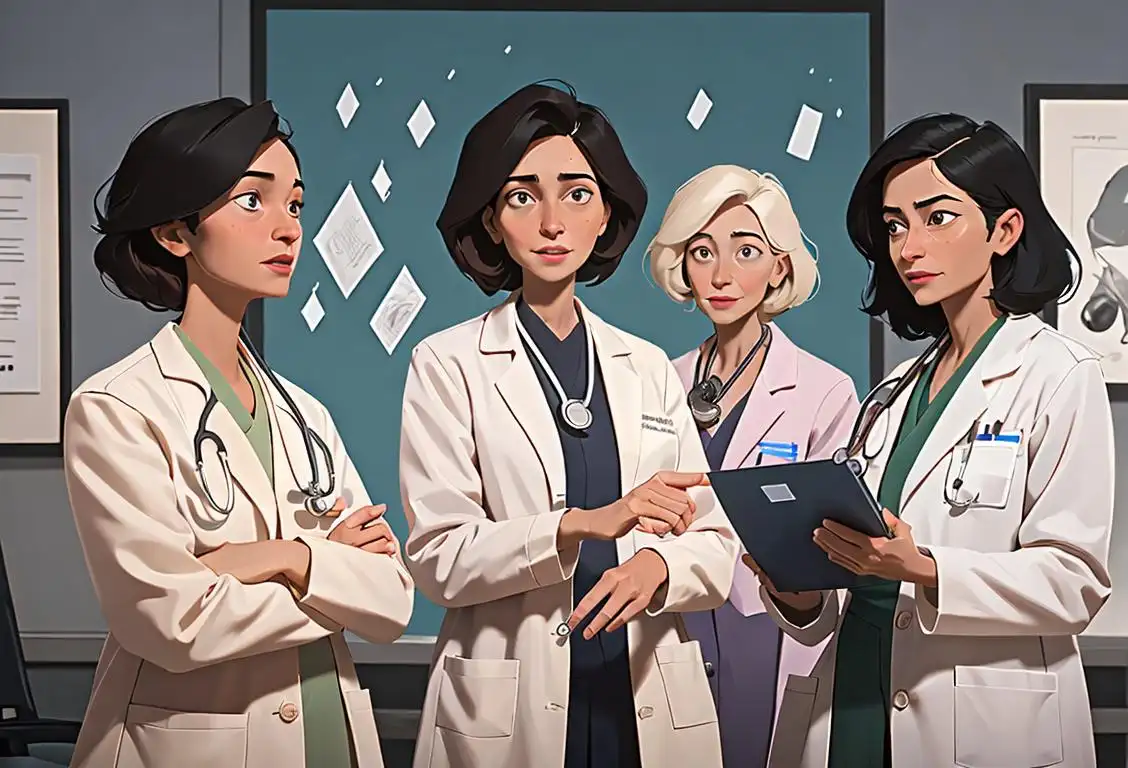National Rx Take Back Day

Hey there! Are you ready to take a little trip with me down memory lane? Well, get your virtual seatbelt on because today we're diving into the internet history of National Rx Take Back Day!
When is Rx Take Back Day?
It's national rx take back day on the 27th April.
The Birth of National Rx Take Back Day
Picture this: It's 2010, and the internet is buzzing with excitement. In the midst of all the cat videos and viral memes, a group of cooler-than-cool folks came up with an ingenious idea. They realized that many people had unused or expired prescription drugs lying around their homes, gathering dust and not doing anyone any good.
So, these clever individuals decided to create a national day to raise awareness of the importance of safely disposing of these medications. And voila, National Rx Take Back Day was born!
How It All Works
On this special day, pharmacies, hospitals, and local law enforcement join forces to set up collection sites across the country. This makes it super easy for people to drop off their unused drugs and know that they'll be disposed of properly.
The initiative also provides education on the potential dangers of hanging onto unused medication. Plus, it helps prevent these drugs from ending up in the wrong hands, reducing the risk of addiction or accidental poisoning.
Did You Know?
In the spirit of fun and education, here's a little did-you-know fact for you: Did you know that the first-ever National Rx Take Back Day collected over 121 tons of prescription drugs? That's right, tons! Talk about a massive clean-up operation!
History behind the term 'Rx Take Back'
1938
The Birth of Prescription Drugs
With the passage of the Federal Food, Drug, and Cosmetic Act in 1938, the modern system of prescription drugs began. This law established requirements for drug safety and accurate labeling. It also introduced the concept of prescriptions, which allowed only licensed healthcare professionals to prescribe certain medications to their patients.
1970
The Birth of Earth Day
In 1970, Earth Day was established as an annual event to raise awareness about environmental issues and promote eco-friendly practices. It became a platform for individuals and organizations to showcase their commitment to the planet's well-being. This opened the door for discussions on pollution and its effects on human health, including the improper disposal of prescription drugs.
1970
Emergence of prescription drug abuse
In 1970, prescription drug abuse began to emerge as a significant problem in the United States. As more people started using prescription medications for non-medical purposes, the need for proper disposal of these drugs became apparent. This led to the development of the term 'rx take back' as a way to encourage people to safely dispose of unused or expired medications.
1970
Birth of the Controlled Substances Act
In 1970, the United States Congress passed the Controlled Substances Act, which classified drugs into different schedules based on their potential for abuse. This legislation aimed to regulate the manufacturing, distribution, and dispensing of controlled substances to prevent their misuse and ensure public safety. The Act laid the foundation for stricter regulations surrounding prescription drugs, including measures for their safe disposal.
2010
Emergence of Prescription Drug Take-Back Programs
In 2010, the term 'rx take back' started gaining attention with the emergence of Prescription Drug Take-Back programs. These programs aimed to provide a safe and convenient way for individuals to dispose of their unused or expired prescription medications. The goal was to prevent these drugs from being misused, abused, or ending up in the wrong hands.
1970
Emergence of Prescription Drug Abuse
Prescription drug abuse becomes a significant issue in the United States, with a growing number of individuals misusing and becoming addicted to medications. As the problem persistently grows, there is a need to address the safe disposal of unused or expired prescription drugs to prevent their misuse and potential harm to the environment.
1970
Implementation of the Controlled Substances Act
In 1970, the United States Congress passed the Controlled Substances Act (CSA) in an effort to establish increased control over the use and distribution of drugs. Under the CSA, the Drug Enforcement Administration (DEA) was formed and given the responsibility of enforcing federal drug laws. This act laid the foundation for future initiatives related to prescription drug take-back.
1998
First nationwide 'Take Back' initiative
In 1998, the first nationwide 'Take Back' initiative took place in the United States. This initiative aimed to provide a safe and convenient way for individuals to dispose of their unused prescription medications. The term 'rx take back' gained popularity during this time, as it became associated with these initiatives and the importance of responsible medication disposal.
2011
National Prescription Drug Take-Back Day
In 2011, the Drug Enforcement Administration (DEA) in the United States established the National Prescription Drug Take-Back Day. This initiative further popularized the term 'rx take back' and brought national attention to the importance of proper medication disposal. The event encouraged individuals to anonymously drop off their unused prescription medications at designated collection sites, ensuring the drugs would be disposed of safely.
1988
The Federal Hazardous Substances Act
In 1988, the United States Congress enacted the Federal Hazardous Substances Act, which established requirements for labeling and packaging certain hazardous substances, including prescription drugs, to protect consumers from potential harm. This act aimed to minimize accidental poisonings and promote the safe handling and disposal of hazardous substances, including unused or expired medications.
2010
DEA launches National Prescription Drug Take-Back Day
In 2010, the DEA launched the National Prescription Drug Take-Back Day, an annual event aimed at providing a safe and convenient way for people to dispose of expired, unused, or unwanted prescription drugs. The initiative was designed to address concerns about the potential misuse, abuse, and environmental impact of improperly discarded medications.
2009
Pioneering the Initiative
In 2009, the U.S. Drug Enforcement Administration (DEA) introduced the first National Prescription Drug Take-Back Day as part of its efforts to address the growing concerns of prescription drug abuse and environmental contamination. The initiative aimed to provide a safe and convenient way for individuals to dispose of their unused or expired medications.
1970
The Controlled Substances Act
In 1970, the Controlled Substances Act was enacted in the United States to regulate the manufacturing, distribution, and possession of drugs. This act classified drugs into different schedules based on their potential for abuse and dependence. Prescription drugs, which could be addictive or have serious side effects, were placed in the most tightly controlled categories.
1990
The Controlled Substances Act Amendment
The U.S. Congress amends the Controlled Substances Act, providing the Drug Enforcement Administration (DEA) with increased authority to control and monitor prescription drugs. This includes regulations to better manage the disposal of controlled substances. The significance of proper drug disposal practices begins to gain recognition.
2010
Building Public Awareness
The second National Prescription Drug Take-Back Day took place in 2010, further bolstering public awareness of the initiative. This event encouraged individuals to gather their unwanted prescription drugs and drop them off at designated collection sites, typically located in pharmacies, hospitals, and other community locations.
2014
Expansion of take-back programs
By 2014, the concept of prescription drug take-back had gained significant momentum. Various states and municipalities started establishing permanent collection sites where individuals could safely and securely dispose of their prescription drugs throughout the year. These programs aimed to prevent the diversion of prescription drugs, reduce the risk of accidental poisoning, and protect the environment from the improper disposal of pharmaceuticals.
2010
Introduction of DEA National Prescription Drug Take Back Day
In 2010, the Drug Enforcement Administration (DEA) introduced the National Prescription Drug Take Back Day. This event, which is held twice a year, encourages individuals to turn in their unused or expired medications at designated collection sites across the country. The term 'rx take back' became widely recognized as the official term for these take-back events.
2000
Collaborative Efforts and Awareness Campaigns
Various organizations, including government agencies, drug enforcement agencies, healthcare providers, and pharmaceutical companies, initiate collaborative efforts to raise awareness about the safe disposal of prescription drugs. Public education campaigns are launched to encourage responsible medication disposal and discourage the flushing of drugs down the toilet or throwing them in the trash.
1990
The Rise of Prescription Drug Abuse
By the 1990s, the misuse and abuse of prescription drugs became a significant public health concern. Many people would obtain prescription drugs through fraudulent means, such as doctor shopping and forged prescriptions. This led to a rise in overdose deaths and addiction rates. A concerted effort was needed to address this growing problem.
2009
Introduction of National Prescription Drug Take Back Day
In 2009, the Drug Enforcement Administration (DEA) in the United States launched the first National Prescription Drug Take Back Day. This initiative provided a safe and convenient way for individuals to dispose of their unused or expired prescription medications. The DEA partnered with local law enforcement agencies to set up collection sites where people could anonymously drop off their medications for proper disposal.
2014
Expanding Awareness and Participation
By 2014, the term 'rx take back' had become widely recognized and associated with medication disposal programs. Efforts were made to expand awareness and participation in these initiatives. Various organizations, including government agencies, healthcare providers, and local community groups, partnered to promote the responsible disposal of prescription drugs and encourage individuals to participate in 'rx take back' programs.
2010
National Prescription Drug Take-Back Days
The U.S. Drug Enforcement Administration starts organizing National Prescription Drug Take-Back Days. These events provide an opportunity for individuals to safely and anonymously dispose of unused or expired prescription drugs at designated collection sites. The Take-Back program gains momentum, offering a convenient and eco-friendly solution to prevent drug abuse and minimize environmental contamination.
2018
Broadening the scope to include all controlled substances
In 2018, the DEA expanded its take-back efforts to include all controlled substances, not just prescription medications. This change recognized the importance of safely disposing of all types of drugs to combat substance abuse and protect public health. It also aimed to address the increasing opioid crisis, which highlighted the need for proper disposal methods for these highly addictive substances.
2014
Increased awareness and participation
By 2014, the term 'rx take back' had gained significant traction and awareness among the general public. More and more people began actively participating in prescription drug take-back programs, leading to a higher rate of safe medication disposal. This increased awareness helped combat prescription drug abuse and minimize the potential environmental impact of improper drug disposal.
2010
Expansion and Public Awareness
Building upon the success of the initial Take Back Day, the DEA expanded the program in 2010. They increased the number of collection sites across the country, making it more accessible for individuals to participate. Public awareness campaigns were also launched to educate people about the importance of safely disposing of unwanted medications and the potential risks associated with keeping them in homes.
2010
National Prescription Drug Take Back Day
In 2010, the Drug Enforcement Administration (DEA) in the United States initiated the National Prescription Drug Take Back Day. This event aimed to provide a safe and responsible way for individuals to dispose of unused, unwanted, or expired prescription drugs. It encouraged people to bring their medications to designated collection sites across the country for proper disposal.
2014
Expanding Reach and Partnerships
By 2014, the National Prescription Drug Take-Back Day had garnered immense success, resulting in increased participation from various entities, including law enforcement agencies, public health organizations, and pharmaceutical industry stakeholders. This expansion helped ensure a more comprehensive collection and proper disposal of prescription drugs.
2019
Environmental Impact and Public Health
In 2019, the term 'rx take back' gained increased significance due to growing concerns about the environmental impact of improper medication disposal. Improperly discarded medications can contaminate water sources, harming aquatic life and potentially affecting public health. This highlighted the importance of 'rx take back' programs in preventing the release of pharmaceutical substances into the environment and safeguarding both ecosystems and human well-being.
2014
Expanding the Scope
Recognizing the importance of ongoing efforts to combat prescription drug abuse, the DEA expanded the National Prescription Drug Take Back Day to include not just a single annual event, but multiple take back days throughout the year. This expansion aimed to increase the accessibility and convenience of drug disposal for individuals, reducing the risk of drug diversion and environmental harm.
2014
Expansion of Permanent Collection Sites
Promising results from the National Prescription Drug Take-Back Days lead to the establishment of permanent collection sites across the country. These locations, often found in pharmacies or law enforcement agencies, offer year-round opportunities for people to responsibly dispose of their unused prescription medications. The expansion helps tackle the issue of excess drugs stockpiled at home and reduces the chance of accidental ingestion or misuse.
Present
Ongoing Promotion and Expansion
Today, 'rx take back' continues to be an integral part of public health efforts worldwide. The term is regularly used to promote the safe disposal of prescription medications and raise awareness about the potential dangers of keeping unused drugs at home. 'Rx take back' programs have expanded globally, with more countries adopting similar initiatives to combat medication misuse, reduce environmental impact, and protect community well-being.
Present
Ongoing Impact and Community Engagement
The National Prescription Drug Take-Back Day continues to be observed annually, actively encouraging communities to actively participate in this crucial public health initiative. The collective efforts put forth by individuals, organizations, and government agencies have made substantial progress in preventing the misuse, abuse, and environmental contamination caused by leftover prescription medications.
2014
Permanent Disposal Options and Year-round Efforts
In 2014, the Secure and Responsible Drug Disposal Act was signed into law, allowing authorized entities, such as pharmacies and hospitals, to collect and dispose of controlled substances. This expansion provided more permanent disposal options beyond the annual Take Back Day. Efforts to encourage year-round participation in medication disposal continued to grow, ensuring a continuous focus on safe drug disposal practices.
Present
Ongoing efforts and expansion
Today, the term 'rx take back' continues to be used to promote and facilitate the safe disposal of prescription medications. Efforts are ongoing to expand the availability of collection sites and educate the public about the importance of responsible medication disposal. The term has become an essential part of the broader movement to address prescription drug abuse and protect public health.
Present
Continued expansion and awareness
Today, prescription drug take-back programs continue to expand and raise awareness about the importance of safe medication disposal. Many pharmacies, healthcare facilities, and law enforcement agencies provide collection sites and regular take-back events. These initiatives contribute to public safety by reducing the availability of unused medications, preventing accidental overdoses, and protecting the environment from the contamination of water supplies due to improper drug disposal.
Present
Continued Impact and Awareness
The concept of prescription drug take back has gained wide recognition and support, both from government agencies and the public. Various organizations, pharmacies, and law enforcement agencies now participate in take back programs, providing ongoing opportunities for individuals to safely dispose of their unused medications. This annual initiative continues to raise awareness about the importance of proper medication disposal and the prevention of prescription drug abuse.
Present
Ongoing Efforts and Increased Awareness
To this day, the Rx Take Back initiative continues to grow, with increasing participation from individuals, organizations, and communities. Governments worldwide are adopting similar programs to tackle prescription drug abuse and promote environmental stewardship. Ongoing educational campaigns and the availability of permanent collection sites encourage responsible medication disposal, reinforcing the importance of safeguarding public health, safety, and the environment.
Did you know?
Did you know that the first-ever National Rx Take Back Day collected over 121 tons of prescription drugs?Tagged
awareness fun healthFirst identified
27th April 2018Most mentioned on
27th April 2018Total mentions
48Other days
Spinach Day
School Nurse Day
Lash Day
Frozen Yogurt Day
Fitness Day
Drug Test Day
Kale Day
Women Physicians Day
No Bra Day
No Smoking Day









